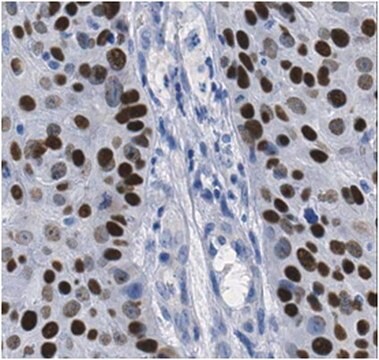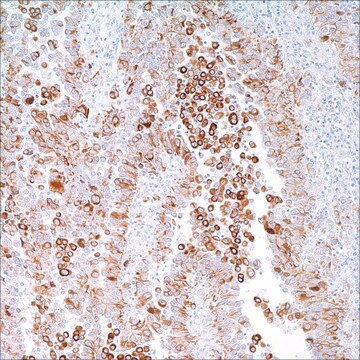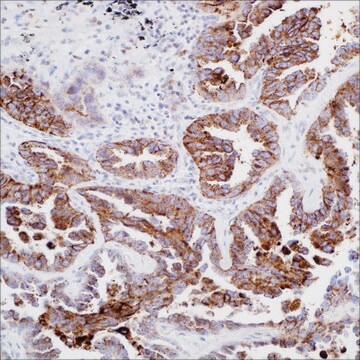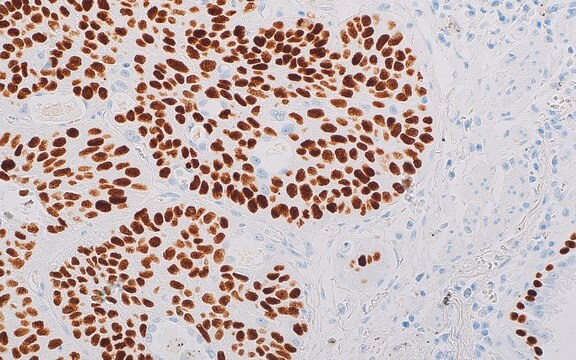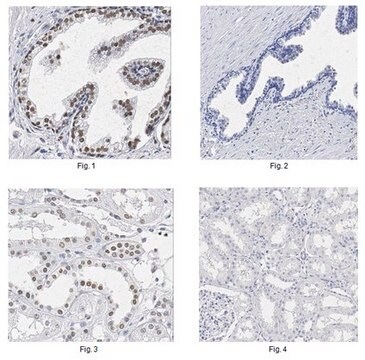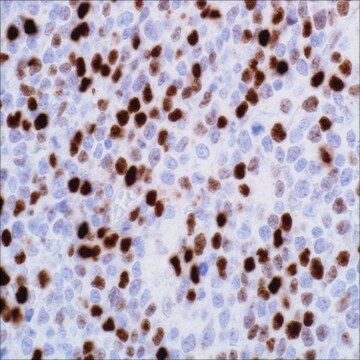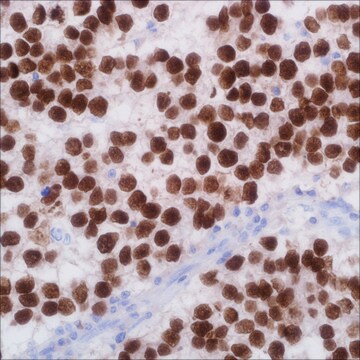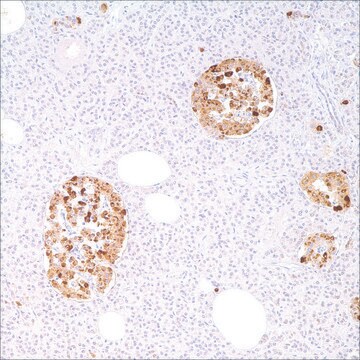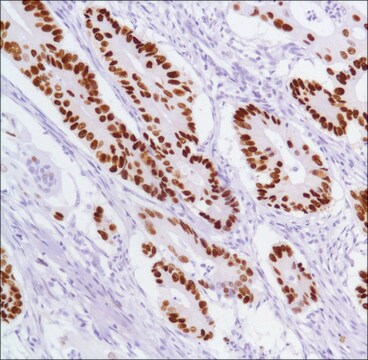Recommended Products
biological source
rabbit
Quality Level
100
500
conjugate
unconjugated
antibody form
culture supernatant
antibody product type
primary antibodies
clone
ZR8
description
For In Vitro Diagnostic Use in Select Regions
form
buffered aqueous solution
species reactivity
human
packaging
vial of 0.1 mL concentrate (483R-14)
vial of 0.1 mL concentrate, Research Use Only (483R-14-RUO)
vial of 0.5 mL concentrate (483R-15)
vial of 1.0 mL concentrate (483R-16)
vial of 1.0 mL concentrate, Research Use Only (483R-16-RUO)
vial of 1.0 mL pre-dilute, Research Use Only (483R-17-RUO)
vial of 1.0 mL pre-dilute, ready to use (483R-17)
vial of 25.0 mL pre-dilute, ready-to-use (483R-10)
vial of 25.0 mL pre-dilute, ready-to-use, Research Use Only (483R-10-RUO)
vial of 7.0 mL pre-dilute, ready to use (483R-18)
vial of 7.0 mL pre-dilute, ready to use, Research Use Only (483R-18-RUO)
manufacturer/tradename
Cell Marque
technique(s)
immunohistochemistry (formalin-fixed, paraffin-embedded sections): suitable (1:100-1:200 (concentrated))
isotype
IgG
control
lung (squamous cell carcinoma), prostate, urothelial carcinoma
shipped in
wet ice
storage temp.
2-8°C
visualization
nuclear
Related Categories
General description
Quality
- United States - IVD
- Canada - RUO
- European Union - IVD
- Japan - RUO
Physical form
Preparation Note
Note: This requires a keycode which can be found on your packaging or product label.
Other Notes
Not finding the right product?
Try our Product Selector Tool.
Storage Class
12 - Non Combustible Liquids
wgk_germany
WGK 2
flash_point_f
Not applicable
flash_point_c
Not applicable
Certificates of Analysis (COA)
Search for Certificates of Analysis (COA) by entering the products Lot/Batch Number. Lot and Batch Numbers can be found on a product’s label following the words ‘Lot’ or ‘Batch’.
Already Own This Product?
Find documentation for the products that you have recently purchased in the Document Library.
Our team of scientists has experience in all areas of research including Life Science, Material Science, Chemical Synthesis, Chromatography, Analytical and many others.
Contact Technical Service